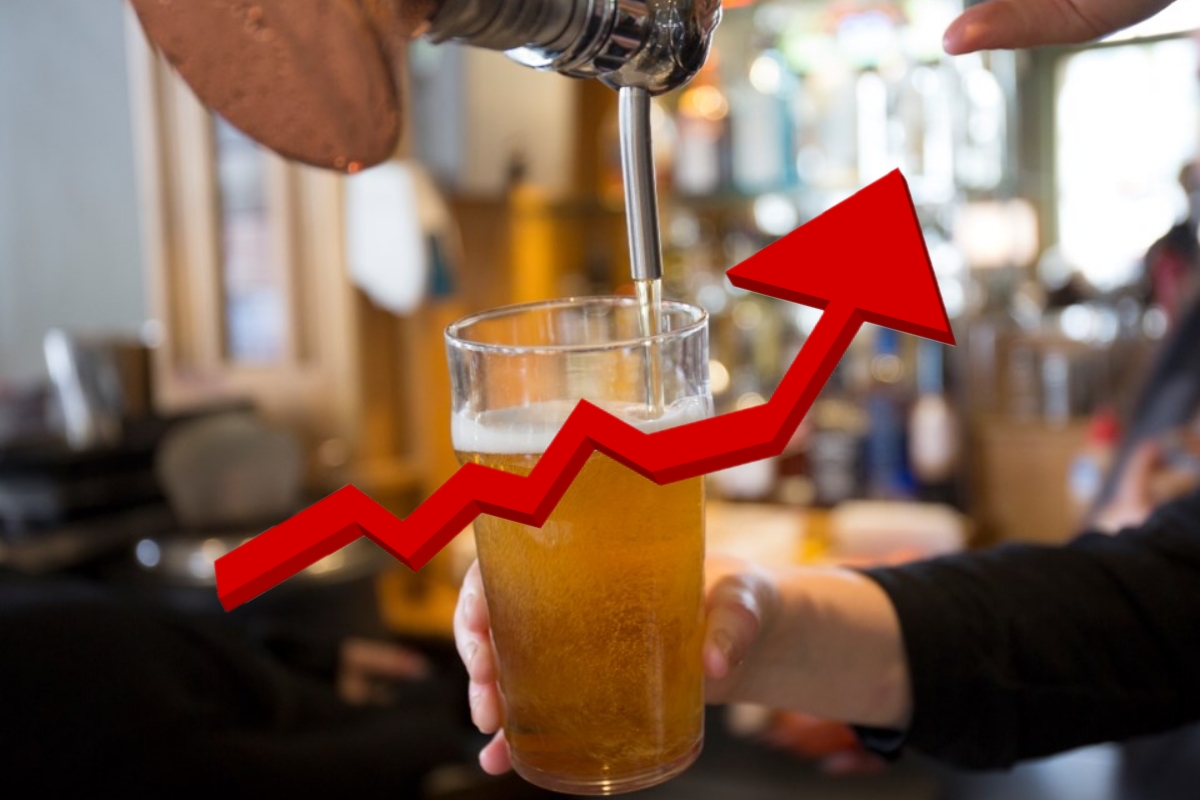
Alcohol taxes have been linked to inflation in Canada since 2017 and will automatically increase by 6.3% on April 1, which is no April Fools joke.
“We had been in a one to two per cent inflation environment for some time, people got used to that,” said CJ Hélie, the President of Beer Canada. “Then bang, almost overnight and we are getting into double-digit inflation.
“What that means for the beer sector is barley prices went up 60 per cent, packaging 40 per cent, freight costs doubling.”
He said brewers were reluctant to raise prices on consumers for a number of reasons, including a slow recovery in the hotel and restaurant sector, where he said “it looks like in BC we are going to be down just under one per cent from last year – not anywhere near where we were in pre-pandemic levels.”
Hélie explains that this is largely because sporting events, concerts, festivals and other similar events have gradually restarted in 2022 amid the first pandemic restrictions and reopening. as well as labor shortage.
As the costs of these behind-the-scenes needs increase, so do taxes.
According to Hélie, about 47% of beer costs in British Columbia are purely financial, with similar figures across the country.
“We are not saying ‘there should be no taxes on beer,’ we are saying ‘47 per cent is pretty high, isn’t that enough?”
That number will skyrocket by over 50% when the 6.3% tax increase goes into effect on April 1 (the largest annual increase in 40 years).
Helier said Canada’s beer tax is the highest among his G7 countries.
“I think Canadian beer taxes would be about 45% higher than other G7 countries on average,” he said.
“Look at trends. G7 countries like Japan and the US have either decreased or are planning to decrease beer taxes, while in Ottawa they have this brilliant idea to increase federal beer taxes every year by inflation.”
Beer Canada has resisted this automatic tax increase since it was introduced in 2017, but did not expect it to get so out of hand.
“The response of the government in the last three to four years has been ‘go away, we don’t want to talk about it, what’s the problem, there’s no issue.’ In the last 12 months, that dialogue has changed completely.”
Politicians from all parties of Canada have expressed sympathy for Hélie and Beer Canada.
“The policy intent was not to have a 6.3 per cent beer tax increase on April first that will have huge negative impact… We are confident that if a bill was put in front of the house of commons, we would have overwhelming support to freeze beer taxes.”
If Canada’s Beer Party is elected tomorrow, Hélie says that’s what they will do.
“We have nobody saying we are wrong, it is just the question of… can we get through the noise to get a bill brought forward to fix this anomaly?”
One of his biggest concerns is that if taxes continue to rise, brewers won’t be able to bear the costs.
“Brewers so far have been very slow and reluctant to pass on all those costs into the prices of their product, because of the fragile nature of their market and because of the way bars and restaurants have been struggling.”
This year, Hélie says retail beer prices have risen 5.6% since the start of the year.
